Master Sommeliers Ronan Sayburn in the UK and James Tidwell in the US, joined on-trade consultant, Joe Fattorini, and hosts Robert Joseph and Polly Hammond to discuss ways forward for the hospitality sector.
If you’ve not discovered the Real Business of Wine yet, then here’s your chance. It’s very much an initiative of our times, but crucially one that will just be just as relevant in a few months when hopefully this coronavirus crisis will have calmed down.
Why? Well, it gives us all the chance to hear directly from experts in different fields of the drinks, hospitality and wine sector from all over the world. The opportunity to both listen and also take part and chip in with questions of our own as the debate is going on. It’s like getting a ticket to a business conference that normally you can’t either afford or is taking place on the other side of the world.
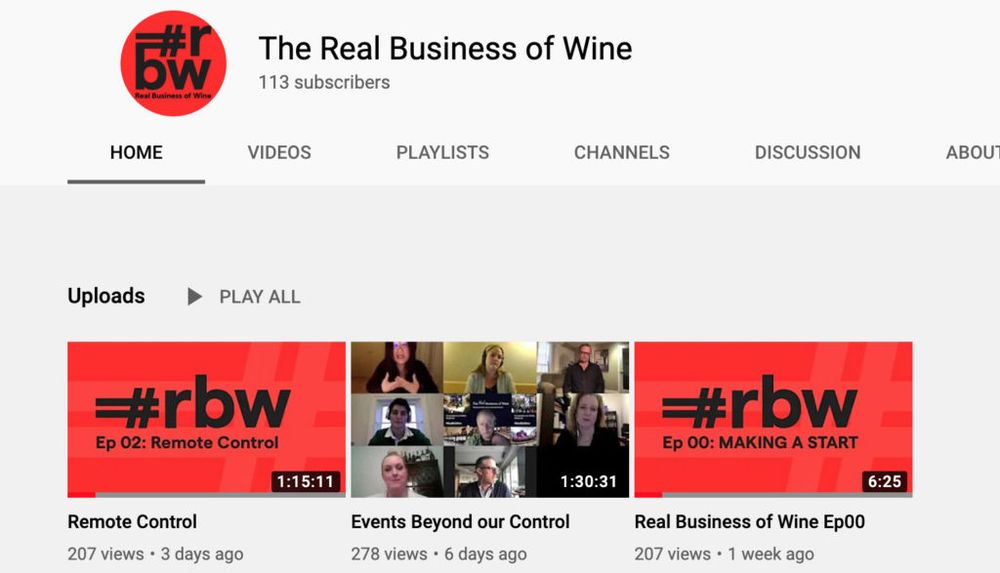
Stay tuned and in contact with the global wine industry through the Real Business of Wine online debates
It’s the joint idea of wine commentator and consultant, Robert Joseph, and Polly Hammond, one of the founders of the 5 Forests wine brand and marketing agency. The concept is straightforward enough. Think of a theme and then invite key people around the world who know how to talk about it. To listen, or take part, you register, log in and away you go.
What next for the shutdown on-trade?
This Monday evening’s session was focused on the on-trade and just how the 1,000s of people now effectively out of work, either paid or not, are going to cope and stay busy in the weeks ahead.
Ideally placed to share their views and guidance were James Tidwell MS, who heads up the Texsom sommelier event, Ronan Sayburn MS, head of wine at 67 Pall Mall and The Wine Show’s Joe Fattorini, who until recently was working as part of Fields Morris & Verdin’s on-trade team, and is currently writing a book on what it’s like to be a sommelier.
Sayburn shared the feelingsof many in the on-trade when he said it had been a “scary few days” when the hospitality sector in the UK was effectively left in no man’s land with the advice that restaurants and bars could stay open, but the government would rather people did not go to them.
It meant, said Sayburn, that a lot of his “friends were having to lay off staff” just to get through.
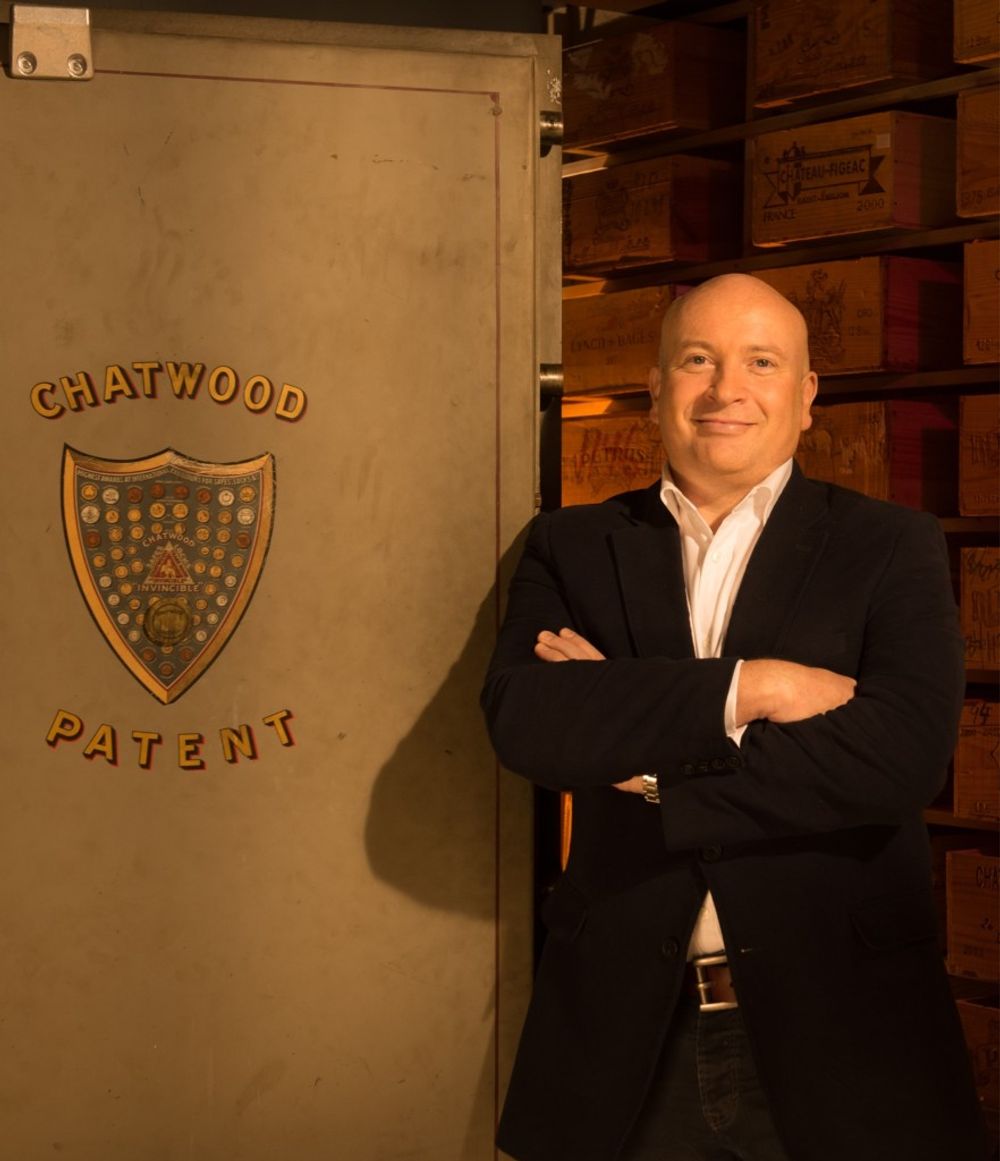
Ronan Sayburn MS of 67 Pall Mall said all sommeliers are going to rely on the collegiate spirit there is in the community at this time
Then came the news on Friday, March 20, that a rescue package was being put in place that, on paper at least, would pay 80% of a person’s wage if they were otherwise going to be laid off at this time. “It’s a great initiative and a massive relief to a lot of people,” stressed Sayburn. “So hats off to the government for that.”
It’s not as though, he added, the sector has not already being going through extraordinarily tough times, thanks to the uncertainty surrounding Brexit and threat looming over so many European staff that they may not be able to work in the UK as they don’t meet the £25k skilled staff status.
“A lot of things have had a knock on effect on the catering sector for some time,” said Sayburn.
Sobering time
Joe Fattorini said he had found it particularly “sobering” over recent days talking to sommeliers about their careers and situation now as part of the research for his book. Clearly they have had time on their hands to share their thoughts and he hopes they have also found it useful to talk about what they have been able to achieve.
“It’s a small positive to come out of these circumstances,” said Fattorini.“It was also good to hear they were all being looked after to some extent.”
For James Tidwell it’s as much about looking ahead, as it is assessing what is happening right now. “What do we do next to figure out something new and different?” he asked.
With no official federal support for on-trade staff there are petitions underway trying to get senators to stand up on behalf of the hospitality sector “help them understand how important the industry is”.

James Tidwell MS says sommeliers need all the help they can get as there is no federal or state support for them currently
“There are many people out there trying to figure out how are they going to make it though the next month or two,” stressed Tidwell in what is clearly going to be a“very difficult time”.
“Sommeliers are trying their best to remain active even if their traditional job is not there at the meant. It’s hard and very uncertain, but just try and take a little bit of control of the situation that you can.”
The dilemma for employers, he added, was do they cut staff now in the hope there is “something for people to come back to” or do they “keep them on and then there is a risk there is not something to come back to after the crisis calms down. “These are awful, hard decisionsbecause these business see these people as being part of their family.”
All he can do is ask people to be “compassionate with everyone”.
Tidwell also spoke about what called “survivor guilt” amongst those who are still employed in the sector. “It’s so hard to talk about that.”
It has really brought home to so many people how much they rely and live their lives through their jobs and their day to day involvement feeling part of a restaurant team, he explained.
“When we are not showing a contribution to the bottom line it can sometimes be hard to show what difference a sommelier makes to a business. But as we know a sommelier is not just serving wine. We are buzzing tables, hosting the front door,expediting the kitchen.”
He hopes this crisis will, if anything, make restaurants appreciate the wider contribution a sommelier team brings to the overall restaurant morale and experience for customers. The best sommeliers, he said, should also be able to do virtually any other job in a restaurant as well – including getting behind the stove.
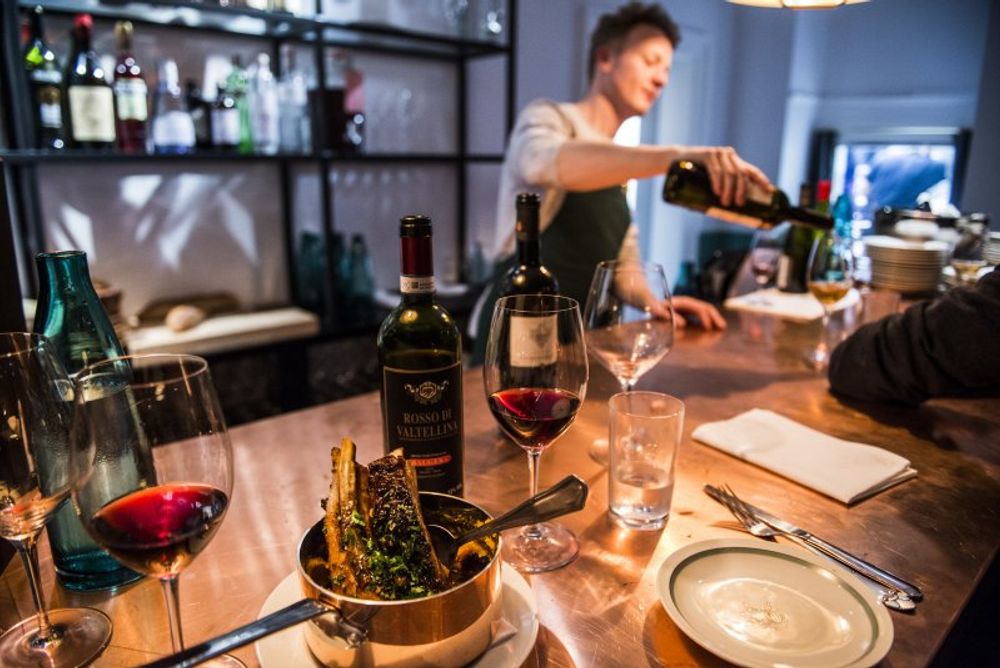
Sommeliers are having to look at new ways they can use their skills and still make a living
Positive steps
The panel were also able to pick out some good ideas and steps that sommeliers are taking to go and find work. One route that is clearly open to them all is to try and find work in the retail sector where stores are open, or at least doing home deliveries.
Tidwell said he had heard how sommeliers are offering to do people’s online wine shop or them and curate home delivery orders. Or create a mixed cases with an importer or merchant to then sell direct to consumers or via retail outlets. It’s something Sayburn said he would encourage all sommeliers to get involved in.
One area where both Tidwell and Sayburn were agreed there would not be any come back is channel management and suppliers moving wines that were allocated to the on-trade to sell in off-trade or direct to consumer.
“Whatever wine merchants have got to do to survive, just do it. If you’ve got to sell your restaurant allocation to me then do it. I won’t mind,” said Sayburn.
“Wine merchants are doing good initiatives, sending out mixed cases. They are working working on small margins and not got a lot of cash flow so have to do what they can.”
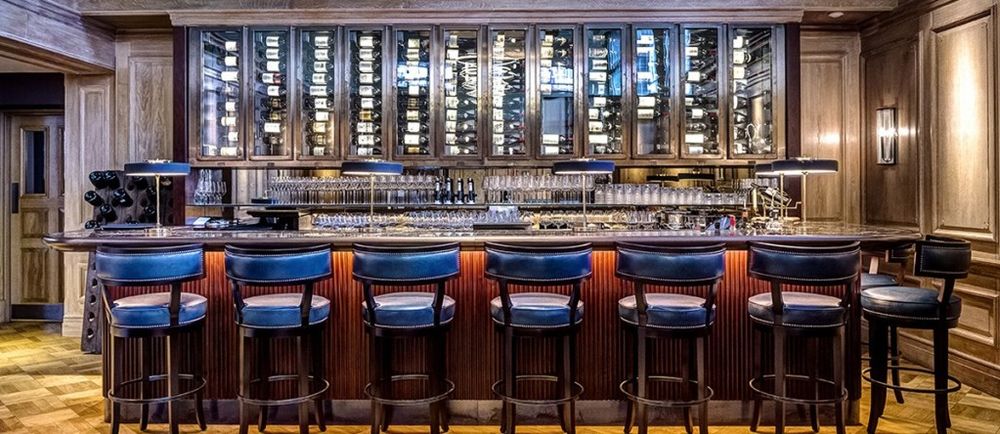
Sayburn urges his on-trade suppliers to 67 Pall Mall to switch tack and sell their wines any way they can. He certainly won’t hold that against them when the market re-opens
Sayburn said he were already seeing interesting ideas on social media with tastings, and videos from chefs on how to cook certain dishes.
“Sommeliers will start doing that as well,” he added, flagging up a new video series he has planned with other sommeliers to do at 67 Pall Mall for its members online.
“It’s also a time to do some reading and writing. It’s early days with us in the UK but we are already see some imaginative and creative things coming out and some light hearted and humorous things as well.”
New ways of working
How it survives will probably see some different ways of working together, but Tidwell believes those companies that act in the right way now will benefit down the line.
“There will be changes in how we relate to each other, but relationships could be stronger than before as a result,” he said.
Fattorini also agreed with Tidwell that “anyone who tries to muck with the system now, then word will get around”. It also goes against what draws so many people to the hospitality sector in the first place – “they like to help each other and their customers”.
He felt it was too “early to speculate” about what sort of industry we might return to, but it was clear already that importers “with the most diverse supply base will survive the best”.
“If you are an on-trade supplier, you don’t have long to survive. We are going to see more hybrid models in the future (on and off-trade).”
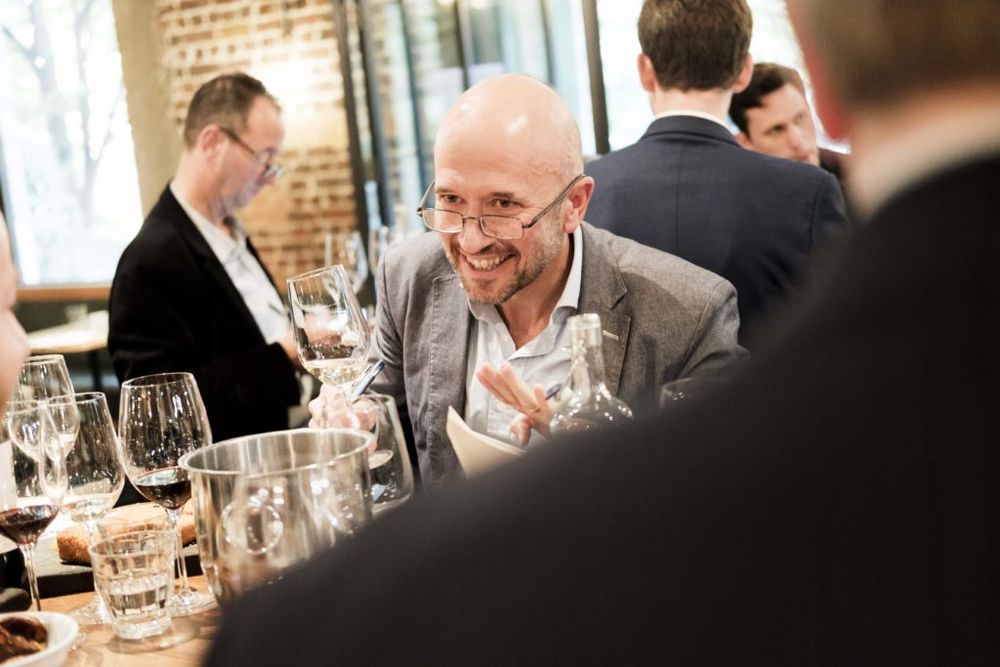
Joe Fattorini sees the current crisis resulting in a very different on-trade landscape in a few months time
Sayburn likened the situation to the time of the financial crash in 2009 when suddenly we started to see pop up restaurants appear, and supper clubs. “I think we will see more things like that.”
Joseph said it will be “fascinating” to see what sort of business models “come out the other side”.
“The people who are looking at this in an altruistic way, and employers doing what they can to support employees, rather than just profit, will benefit.”
Collegiate spirit
Joseph felt this was perhaps a time for the collegiate spirit that exists in the sommelier community to really shine.
Sayburn agreed: “Part of our trade is customer facing and telling stories and something interesting about aparticular wine not justto our customers, but also to our peers. Be it sharing our wines and knowledge and recommendations on Instagram. It’s what we do. We go on a lot of trips together. Part of our job is sharing knowledge and the free flow of information.”
That sense of “sharing” is something that has come across strongly to Fattorini, but also what he calls “professional camaraderie” by which he means “whom has given who a leg up” or “who gave how what bit advice”.
“There is surprisingly little bitchiness and cattiness amongst sommeliers. A lot of their Sunday nights are spent at dinner parties together.”
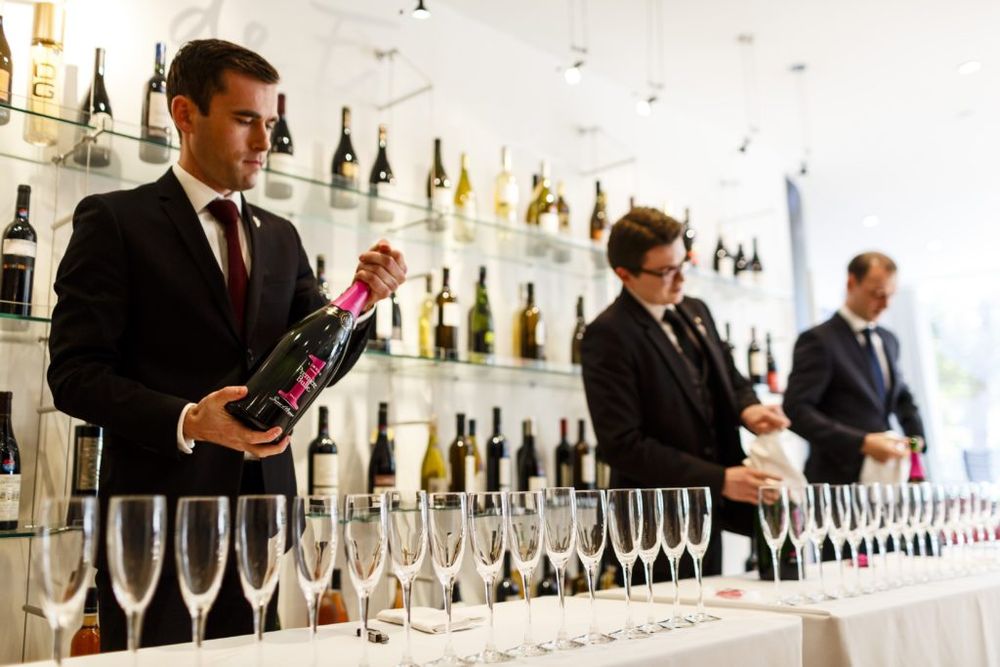
There is a strong bond between sommeliers. They might compete against each other, but they all have each others backs
They also have the same experiences working as a sommelier that are unique. Which Fattorini clearly stretches to any job that involves “stemware” from picking up and cleaning the orange juice glasses from breakfast service.
Joseph also felt part of that sharing culture was to do with the “next job”. “That sense of self promotion and positioning myself for my next job. You are not just sharing a picture of a bottle of wine, but how you have discovered this wine from Albania, or how this food and wine match works.”
Tidwell said the strength of the bond between sommeliers lies in the experiences they have shared on the front line working in busy, stressful restaurants. “We’ve all worked a restaurant service when all his hell is breaking lose and it is not in your control. As a group you learn as a team how to take control of a certain situation. What you can do to help each other.”
Shared experiences
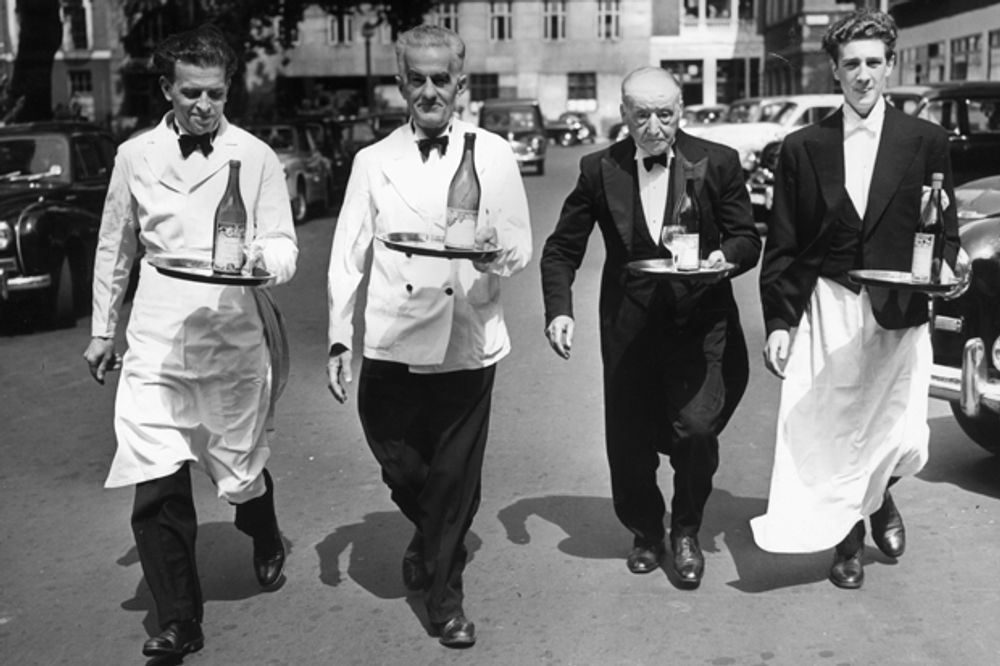
The skills of a sommelier have been passed down through the generains
Those are the shared experiences that are so powerful, he stressed “That is what happening at the moment in the US. We are not getting help from the government. Instead we are seeing the hospitality industry overall come together. We have practiced these scenarios before because we have been through these nightmare services together.”
Tidwell said he heard how sommeliers are coming together to help each other fill in unemployment claims forms and where to go to for the best advice. “It’s those bonds that relate back to the restaurant experiences when things are not going right and you have to rely on each other to get through it. What we are seeing now is an extension of that.”
Sayburn said that togetherness also comes from the fact sommeliers are constantly moving between jobs, having to meet and get on with new people wherever they go. “So you meet a lot of people in different stages of your career, but also people who you have with, gone on trip and more and more doing wine exams together.”
What other job, he claimed, makes you go through some of the “real humbling experiences” of doing a live service in front of your peers in a competition.
“If you act like a superstar with a big head, you won’t last very long,” said Sayburn. “That’s why there is a real sense of community amongst sommeliers.”
It’s that community which, he believes, will help the sector in the long term.
“Hospitality will bounce back. However long it takes. We will get there,” said Sayburn.
- You can register and sign up to watch the regular series of Real Business of Wine debates on its YouTube channel here. To keep up to date with what debates are coming up go to its website here. The guest on March 26 is Jancis Robinson MW, who will be answering the trade’s questions.































